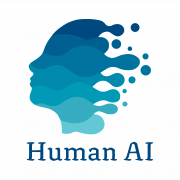Cultivating socio-emotional skills in education: key strategies and effective programs
Key Strategies and Effective Programs in Educational Centers
Socio-emotional skills in education are now a fundamental pillar for student well-being and success. Education cannot be limited to academic development alone. Multiple studies have shown that working on socio-emotional skills—managing emotions, building positive relationships, and making responsible decisions—is essential for creating resilient and sustainable communities.
This evidence is reinforced by a new meta-analysis from the Yale School of Medicine (2025), which reviewed more than 40 studies with data from 33,700 students. Its main finding: Social and Emotional Learning (SEL) programs improve academic performance by an average of 4 percentage points, reaching up to 8 points when implemented for a full year. Improvement is especially visible in reading (+6.3 points) and also significant in mathematics (+3.8 points).
This new evidence strengthens what educators already observe: when students manage their emotions, they learn better.
Why develop socio-emotional skills in the classroom?
- Impact on well-being and learning: SEL programs improve self-esteem, motivation, and self-efficacy, while reducing bullying and preventing mental health issues.
- Preparation for life and work: SES are associated with better academic performance, higher employability, stronger leadership, and adaptability.
- Building responsible citizenship: SES foster empathy, collaboration, and community engagement—essential for shaping a better future.
Guidelines for Developing Socio-Emotional skills
1. Initial Diagnosis and Personalization
Use objective tools to evaluate students’ socio-emotional profiles, such as assessments based on the OCEAN (Big Five) model, which measures openness, conscientiousness, extraversion, agreeableness, and emotional stability.
Adapt interventions to the cultural and social realities of the school.
2. Systematic Incorporation of SEL into the Curriculum
Integrate activities of self-knowledge, emotional regulation, and social skills across all subject areas—not only in homeroom or counseling sessions.
Promote cooperative learning and project-based work, which strengthen collaboration and empathy.
3. Teacher Training for Socio-Emotional skills
Develop teachers’ abilities to identify socio-emotional needs and guide transformation processes.
Use interpretation guides and manuals to translate assessment results into concrete classroom actions.
Train teachers not only to intervene but to develop their own SES and model them for students.
4. Involvement of the Entire Educational Community
Engage families, school leadership, and external partners in promoting well-being.
Encourage spaces for dialogue and participation.
Validated Programs and Practices for Developing Socio-Emotional skills
Various programs and methodologies have demonstrated effectiveness in developing SES, with measurable improvements in specific skills:
- CASEL Program (Collaborative for Academic, Social, and Emotional Learning): International reference structured into five blocks—self-awareness, self-management, social awareness, relationship skills, and responsible decision-making.
- Coexistence and mediation classrooms: Promote empathy and positive conflict resolution.
- Cooperative learning: Strategies such as heterogeneous group work and peer tutoring.
- Mindfulness and emotional education interventions: Improve self-regulation and resilience.
- Personalized evaluation and feedback: Tools like Human AI provide fast and objective diagnostics, enabling individual and group monitoring with concrete improvement proposals in areas such as motivation, collaboration, leadership, or bullying prevention.
Final Recommendations
- Ensure continuity of actions, combining SEL with character education and adapting practices to diverse school contexts.
- Regularly evaluate program impact, including students and families in the process.
Remember: real change happens when the entire educational community commits to looking beyond academic results and places well-being and coexistence at the center.
This article is based on the work “Socio-Emotional skills Sustainable Development: An Exploratory Review” (Abad-Villaverde, B., Estanga Goñi, Á., Orbaiceta, R. et al., 2024), which analyzed 49 international studies on the integration of SES in formal education and their connection with the OCEAN model.
Do you want to develop socio-emotional skills in your school?
At Human AI, we help you evaluate and strengthen the socio-emotional skills of your students and teaching staff through innovative, objective tools based on natural language processing and the OCEAN model.
Request your Human AI demo here.
We also share a practical guide for socio-emotional development in the classroom:
“SES Development: Practical Guide for Schools that Transform”
Download link available on the website.










